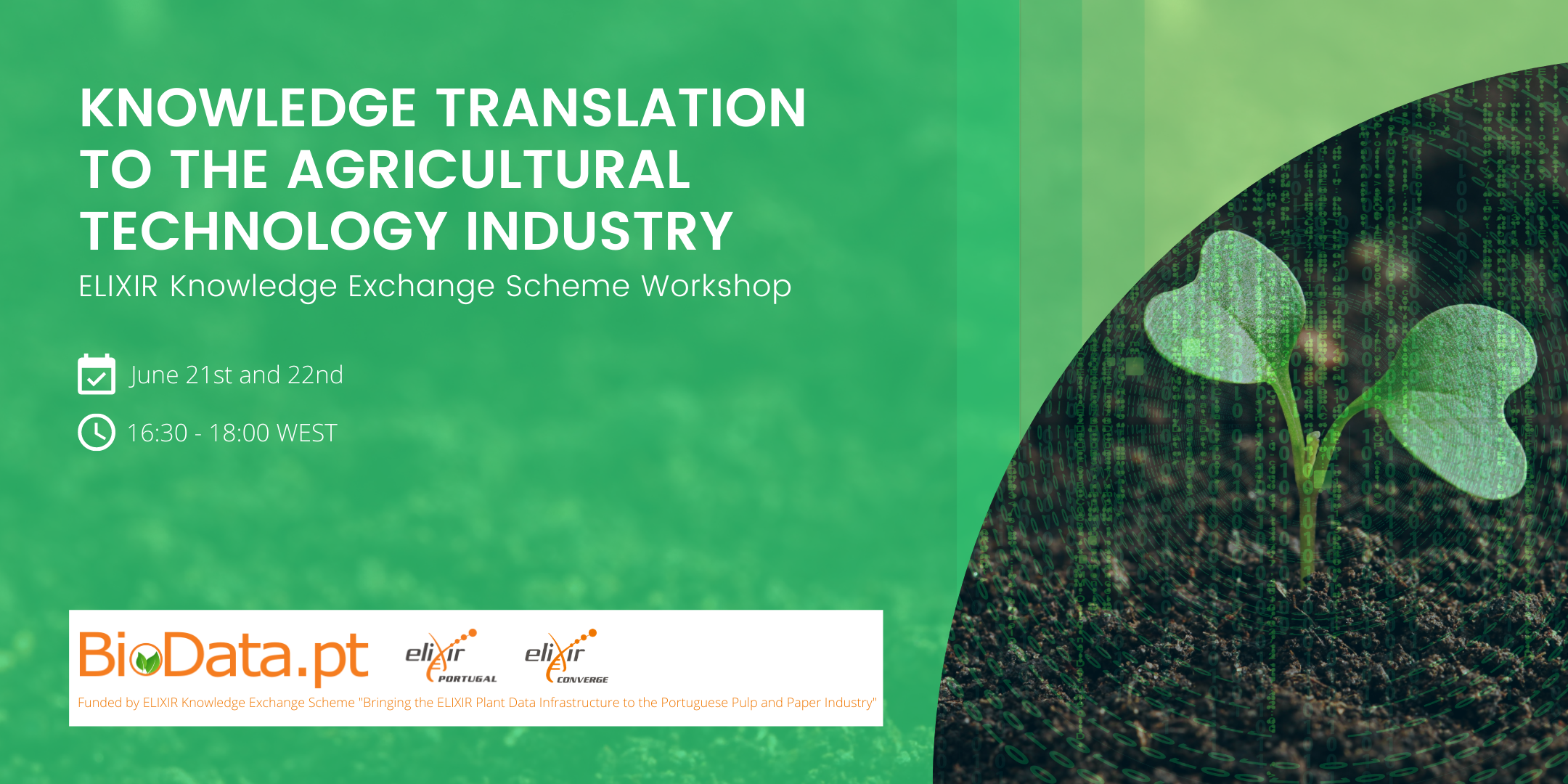Knowledge Translation to the Agricultural Technology Industry

This event intends to divulge the outcomes of two ELIXIR-PT projects being held with industrial partners from the agritech sector.
⚠️ This is an old version of the BioData.pt website, available for reference purposes. Information is out-of-date and some features may not work correctly. Click here to browse the current website.

This event intends to divulge the outcomes of two ELIXIR-PT projects being held with industrial partners from the agritech sector.
BioData.pt Talks comprise a series of monthly webinars given by BioData.pt collaborators and guest experts.
CorkOakDB integrates knowledge generated from fundamental and applied studies about Quercus suber, with a focus on genetics. It features the first draft genome of Quercus suber, released in 2018 by the GENOSUBER consortium, and allows genome browsing and gene search. It also incorporates other types of data from cork oak scientific research, including gene expression data from publicly available datasets.
The Plant domain has been the subject of several attempts to structure and formally define terms and corresponding relations, such as their anatomical features, developmental stages, and the application of particular experimental procedures to a biological problem. However, a focus on experimental assays in order to describe the whole experimental procedure, to the best of our knowledge, has only been attempted in the context of a very general description based on classical views of the scientific method.
Plant phenotyping research has gone through a data revolution with the automation of plant phenotyping platforms, making it critical to adopt good data management practices in order the exploit the torrent of data to its full potential. Concretely, data should be published in a Findable, Accessible, Interoperable and Reusable (FAIR) way in order to enable the integration of data from disparate sources and the discovery of new knowledge. Yet, this is one of the more challenging domains to standardize, as it is extremely heterogeneous in terms of experimental settings and types of data.